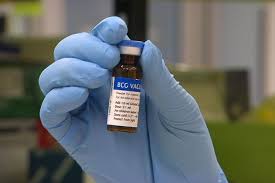
Tuberculosis Vaccine Being Tested for Effectiveness Against Covid-19
In late September, Canadian researchers launched a clinical trial of the BCG vaccine, which was originally developed to prevent tuberculosis. The Canadian trial is one of several around the world that is looking at the potential for BCG to reduce Covid-19 infections. The recombinant version being used in the Canadian trial is based on a bacterium that has been genetically modified to improve its ability to rev up a host’s immune system. Other trials are using the standard version of BCG.
Many studies suggest that BCG may play a broad role in reducing overall rates of respiratory disease. Data have shown that people who were injected with BCG as infants had fewer infections later. A recently published study of elderly patients in Greece prior to the Covid-19 pandemic found that those who were given the vaccine had a 70% lower rate of readmission to the hospital.
The vaccine was first tested in humans in 1921. Since then, four billion doses of the vaccine have been administered worldwide, mostly to infants in countries with high rates of tuberculosis. This has provided a long and detailed record of its safety and any adverse effects, which can include scarring at the injection site. Researchers suspect that the BCG vaccine primes the body in a general way and enhances its ability to seek out and destroy virus-infected cells.
If the same effect extends to Covid-19, BCG may provide public health officials with a safe and inexpensive vaccine option that has already been approved for use in Canada and elsewhere.
Terry Pfau DO, HMD
